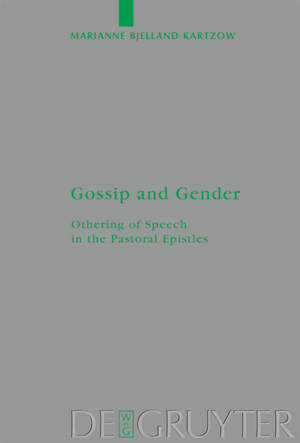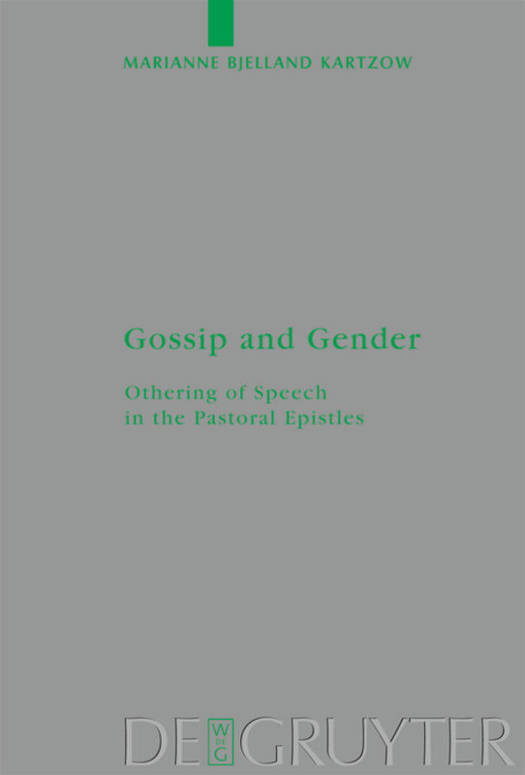
- Afhalen na 1 uur in een winkel met voorraad
- In januari gratis thuislevering in België
- Ruim aanbod met 7 miljoen producten
- Afhalen na 1 uur in een winkel met voorraad
- In januari gratis thuislevering in België
- Ruim aanbod met 7 miljoen producten
Omschrijving
This book suggests that gossip can be used as an interpretive key to understand more of early Christian identity and theology. Insights from the multi disciplinary field of gossip studies help to interpret what role gossip plays, especially in relation to how power and authority are distributed and promoted. A presentation of various texts in Greek, Hebrew and Latin shows that the relation between gossip and gender is complex: to gossip was typical for all women and risky for elite men who constantly had to defend their masculinity. Frequently the Pastoral Epistles connect gossip to false teaching, as an expression of deviance. On several occasions it is argued that various categories of women have to avoid gossip to be entrusted duties or responsibilities. "Old wives' tales" are associated with heresy, contrasted to godliness in which one had to train one self. Other passages clearly suggest that the false teaching resembles feminine gossip by use of metaphorical language: profane words will spread fast and uncontrolled like cancer; what the false teachers say is tickling in the ear, and their mouth must be stopped or silenced. The Pastoral Epistles employ terms drawn from the stereotype of gossip as rhetorical devices in order to undermine the masculinity and hence the authority, of the opponents.
Specificaties
Betrokkenen
- Auteur(s):
- Uitgeverij:
Inhoud
- Aantal bladzijden:
- 257
- Taal:
- Engels
- Reeks:
- Reeksnummer:
- nr. 164
Eigenschappen
- Productcode (EAN):
- 9783110215632
- Verschijningsdatum:
- 29/10/2009
- Uitvoering:
- Hardcover
- Formaat:
- Genaaid
- Afmetingen:
- 156 mm x 234 mm
- Gewicht:
- 671 g

Alleen bij Standaard Boekhandel
Beoordelingen
We publiceren alleen reviews die voldoen aan de voorwaarden voor reviews. Bekijk onze voorwaarden voor reviews.









